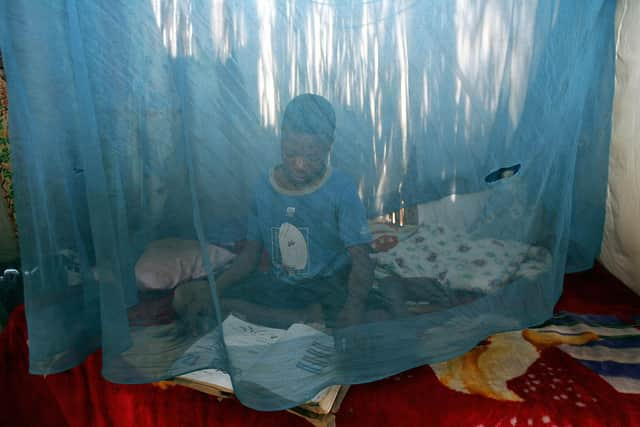Covid pandemic should make us all think differently about malaria – Professor Eleanor Riley
Mask wearing. Elbow bumping. Stepping off the pavement to allow a parent and toddler to pass. Queuing outside shops. One-way systems inside shops. Trying not to touch handrails and door handles. Wrapping your hand in your sleeve to push the button on pedestrian crossings. Even as we begin to unlock, these measures are still very much with us.
But, despite the hiccup with the latest variants of Sars-CoV-2, we can finally begin to imagine the day when we can put this behind us, in the UK at least.
Advertisement
Hide AdAdvertisement
Hide AdAnd the only reason for this optimism is the hugely successful vaccine programme. Once most of us have been vaccinated and deaths remain low, masks and hand gel will disappear with just the ghostly outlines of the keep-your-distance markers on our streets to remind us of what we have been through.
But imagine, if you can, two other scenarios. First, that despite huge efforts, an effective Covid-19 vaccine just wasn’t forthcoming. That the virus continued to mutate, evading immunity painstakingly built up by running the gauntlet of Covid-19 infection winter, after winter, after winter.
That the strain on our NHS became an annual event. That those of us who survived the annual Covid-19 cull were condemned to shelter, socially distance, wear masks and live in fear of the virus. Until, perhaps, after five or ten years, we developed some variant-transcending immunity that allowed us to relax a little even as our children grew up, become susceptible to severe Covid-19 and began their own ten-year battle to survive.
And then imagine that fatal Covid-19 wasn’t a disease of adults, but of small children. Imagine enforcing distancing and mask wearing in nurseries and primary schools without seriously damaging your child’s education and social development.


Imagine living with the dread that every fever, every cough and every tetchy tantrum could be the harbinger of a paediatric intensive care admission, or worse.
But, give or take a few details, these scenarios play out every day in parts of Africa, Asia and South America where malaria – transmitted by predominantly night-biting mosquitos – is endemic.
There is no widely available or highly effective malaria vaccine. Every childhood fever can be the prelude to a life-threatening malaria infection.
The hospitals may be full or unreachable. The drugs may be unaffordable or ineffectual due to drug resistance.
Advertisement
Hide AdAdvertisement
Hide AdAll you can do is make sure that your child sleeps every night under a mosquito net. That the net is regularly doused in insecticide, is carefully tucked in leaving no gaps, and has not the tiniest hole where a mosquito can get in. That your sleeping child’s arms, legs, fingers and face don’t touch the net where they could be bitten through the holes. That when they get up in the middle of the night, you tuck them in again securely before a mosquito can get in.
And that you do this, night after night after night, without fail, for at least the first ten years of their life. And you know that even this may not be enough.
Eleanor Riley is professor of infectious disease immunology at the University of Edinburgh
A message from the Editor:
Thank you for reading this article. We're more reliant on your support than ever as the shift in consumer habits brought about by coronavirus impacts our advertisers.
If you haven't already, please consider supporting our trusted, fact-checked journalism by taking out a digital subscription.
Comments
Want to join the conversation? Please or to comment on this article.
